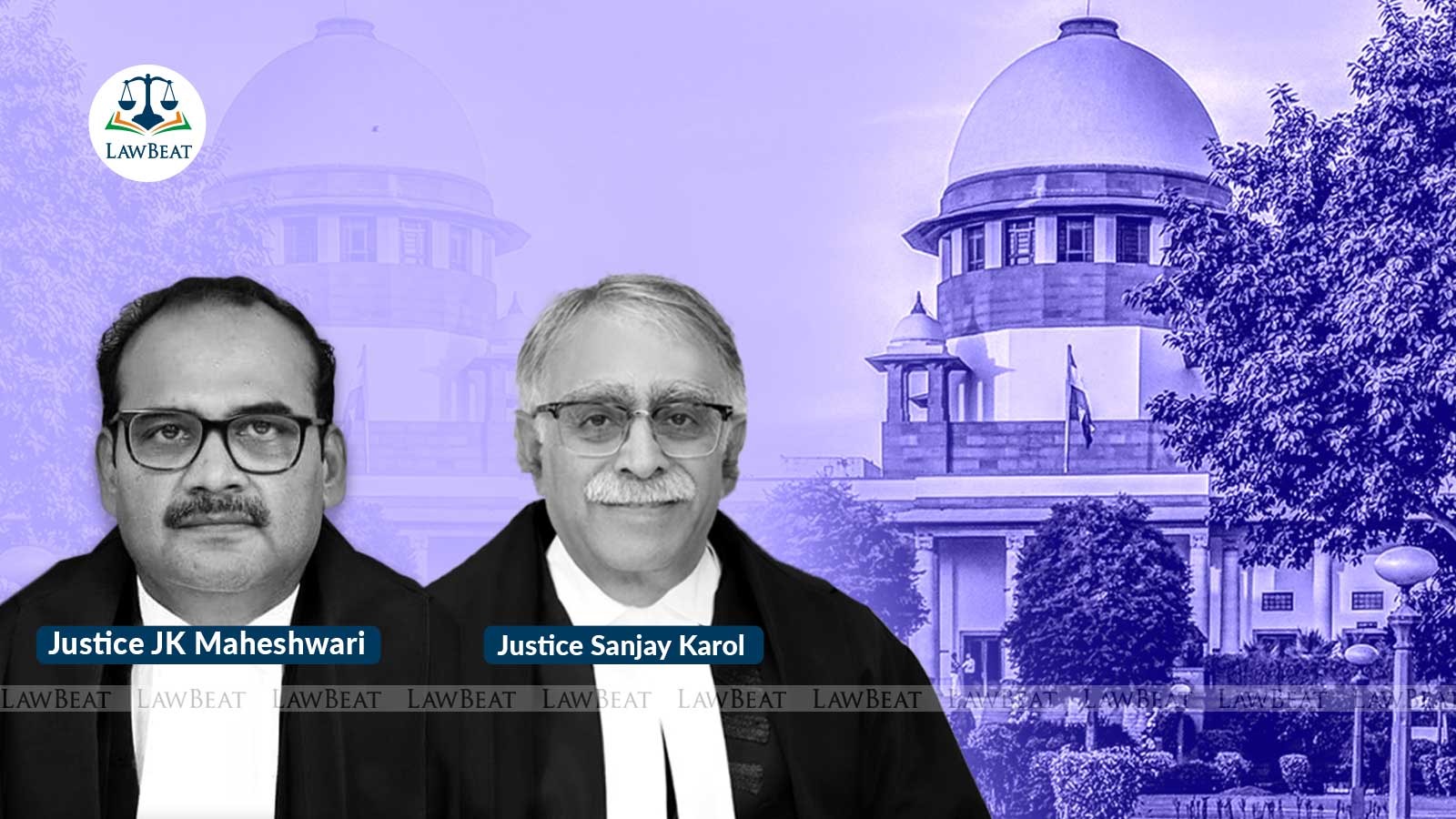High Courts To Entertain Second Appeals Only on Substantial Question of Law: SC

It is the duty of the high court to frame substantial questions of law before hearing an appeal under Section 100 of the CPC, the top court highlighted
The Supreme Court has observed that the high courts are required to hear second appeals under Section 100 of the Civil Procedure Code only on the satisfaction that there exists a substantial question of law.
A bench of Justices J K Maheshwari and Sanjay Karol set aside the Calcutta High Court's judgment and affirmed the order by the City Civil Court at Calcutta.
The top court allowed an appeal filed by one Rashmi Kant Vijay Chandra and others against defendant Baijnath Choubey and Company.
The dispute arose between the plaintiff landlord and the defendant tenant concerning premises at Ezra Street, Calcutta, which had been settled into a trust by Harak Chand Veljee in 1933. The plaintiff-appellants were trustees of this trust. Baijnath Choubey, a tenant on part of the premises, had passed away, leaving a trust for his son, who was in an asylum. The trust allegedly ended after the death of his son in 1949 and his daughter, who died without heirs.
The plaintiffs claimed that the trustees of the respondent-tenant formed an illegal partnership with two individuals, Sarbottam Das Mundra and Chetandas Mundra. In May 1984, they discovered that one of the trustees or their legal representatives no longer existed, leading them to believe the business was being carried on fraudulently. The plaintiffs then alleged that the defendant had illegally sublet the premises and issued an eviction notice on July 22, 1984, followed by a suit for eviction.
The trial court dismissed the suit.
The first appellate court set aside the findings of the trial court and decreed the suit in favour of the plaintiff-appellants. It held that there were contradictions in the reasoning of the trial court. It held that the defendant had sublet the suit premises and was, therefore, liable to be evicted from the same.
The high court, however, allowed the appeal.
In the challenge to the high court's decision, the top court said, "We are of the view that the High Court fell in error in overturning the findings of the First Appellate Court".
The court pointed out that the answer to the objection raised by the respondent-defendant qua the non-joinder of all trustees as necessary parties, was in the impugned judgment itself.
It found that the high court had noted that the respondent-defendant contested the suit by filing a written statement, which was signed by Sarbottum Das Mundra, who was a partner of the defendant. Pertinently, before the trial court, in the written statement, there was no reference made to the non-joinder of necessary parties.
The top court felt that the issue which remained to be considered, was whether the high court erred in observing that the order of the first appellate court was based on no evidence. In our view, the answer is in the affirmative, the bench said.
It said that it has earlier been affirmed that it is the duty of the high court to frame substantial questions of law before hearing an appeal under Section 100 of the CPC and such a second appeal has to be heard and decided on such substantial question of law.
Adverting to the facts of the case at hand, the bench pointed out that the questions of law framed by the high court for admission of the appeal pertained to necessary parties, non-joinder of such parties, and the effect it had on the suit filed by the plaintiff-appellants.
In the case, the bench found, the high court had proceeded to discuss the issue of sub-letting of the suit premises and the decree of the first appellate court was set aside on that ground.
"There is no question framed about lack of evidence, sub-letting or incorrect appreciation of facts by the learned first appellate court, on which the final finding of the High Court is returned. Furthermore, there is no discussion by the High Court, as to the reasons required for the departure from the substantial questions of law framed at the stage of admission or in the impugned order. The impugned judgment overturns the finding of fact of the First Appellate Court qua sub-letting without framing a substantial question of law in this regard at any stage," the bench said.
The court accordingly set aside the high court's judgment and directed the respondent-defendant to hand over vacant physical possession of the suit property by December 31, 2024. It also clarified any dues up till the date of occupation would be borne by the respondent-defendant.
Case Title: Rashmi Kant Vijay Chandra & Ors Vs Baijnath Choubey & Company
